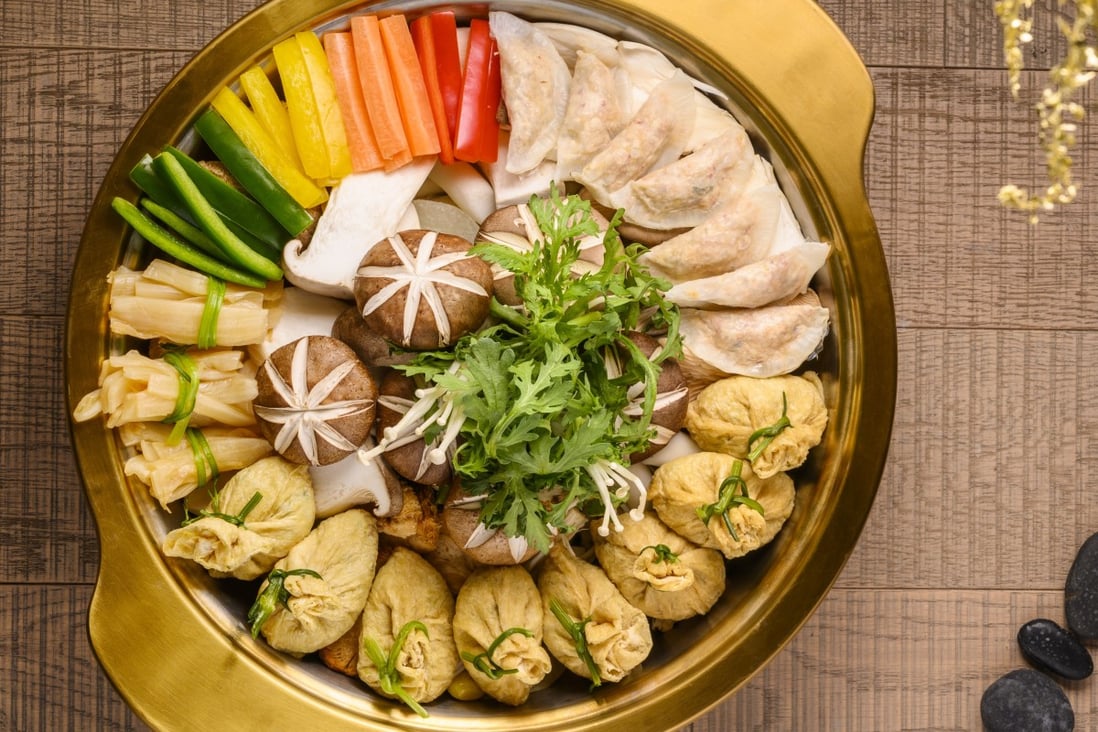
Poon choi – a communal dish of foods served in layers whose name means “big bowl feast” – was traditionally eaten on festive occasions in villages in the Pearl River Delta, including Hong Kong’s New Territories.
In recent decades, restaurants started serving the dish – and at some, it became a luxurious affair. Now, with social distancing rules threatening to put a dampener on Lunar New Year celebrations, poon choi has evolved again – into a takeaway dish for home feasting.
With the Lunar New Year starting on February 12, the current dining restrictions make it difficult for families and relatives to gather in restaurants to celebrate the upcoming Year of the Ox, which is why restaurants are now offering poon choi as takeaway options to enjoy at home with loved ones.
Many of the poon choi dishes on offer in Hong Kong feature gourmet ingredients such as abalone, fish maw and conpoy, but original poon choi was hardly high-end, explains Sidney Cheung, a professor of anthropology at the Chinese University of Hong Kong who specialises in food and culture.

“Villagers in the New Territories make traditional poon choi with fish balls, pork, pig skin, maybe chicken or dried oyster – in general, ordinary ingredients you can eat all year round. Traditional poon choi uses ingredients that are not seasonal,” he says.
“Poon choi was typically eaten for red or white events. Red events were happy ones like weddings, birthdays, or welcoming someone back from overseas, while white ones were for funerals or grave sweeping.”
Three chefs on delicious dishes inspired by their grandmothers
Poon choi was only common in areas of southern Guangdong province such as the Pearl River Delta communities of Zhongshan, Dongguan and Shunde, Cheung says; Chiu Chow people in the east of the province, who have their own cuisine distinct from Cantonese cuisine, do not typically eat poon choi, and neither do the Hakka – descendants of Han Chinese migrants from northern China also with their own distinct cuisine – although in the past decade or so they have adopted the dish.
Literally translated as “basin food”, poon choi began to be served by restaurants in the New Territories in the 1990s, aimed at local tourists. They served poon choi on special occasions such as at Lunar New Year and Mid-Autumn Festival, and on the winter solstice.
Soon restaurants in urban areas of Hong Kong began offering poon choi, and the dish evolved into one that features high-end ingredients. Even fast-food restaurants serve poon choi these days – offering one-person portions served in a small, hollowed-out pumpkin.
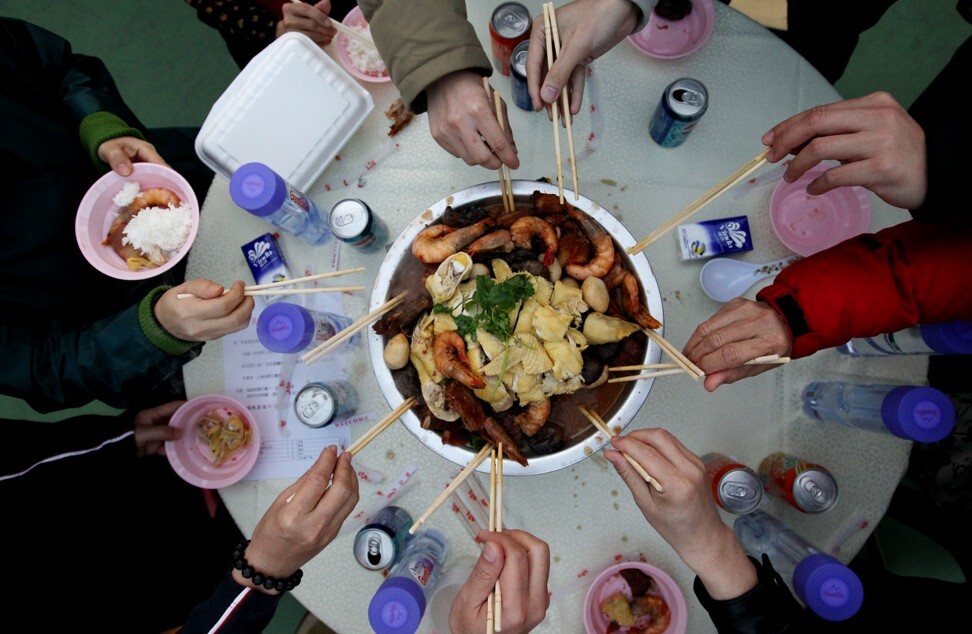
“Traditionally it has pork skin in it, but perhaps for health reasons restaurants in the city didn’t include it and instead added other ingredients. Since it’s a dish for family gatherings, the updated poon choi has nicer ingredients in it,” Cheung says.
He notes there is an exact portioning of food in these modern poon choi; if it is for 12 people, there will be a dozen servings of each ingredient. This is another departure from the tradition of poon choi.
Leung Yu-king, Chinese executive chef at the Summer Palace restaurant in the Island Shangri-La hotel in Admiralty, is presenting the restaurant’s first ever poon choi this year.
“Because of the pandemic we want to still give our guests the opportunity to eat together,” he explains. “The traditional poon choi in Yuen Long [a district in the New Territories] use simple ingredients, but ours is more high-end with abalone we have prepared and braised, as well as dried oyster.”
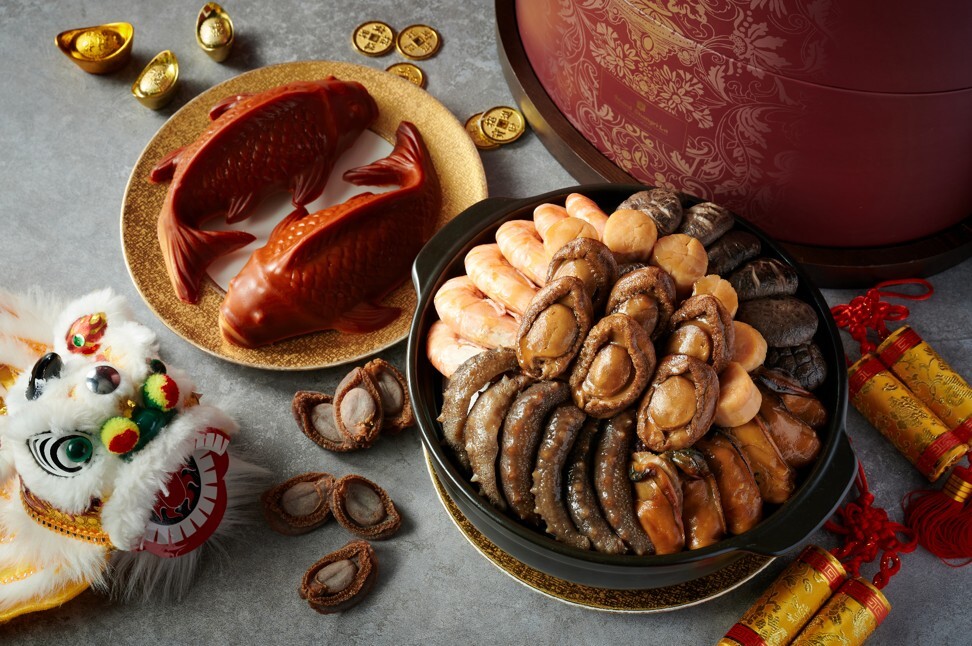
Poon choi served at Lunar New Year features auspicious foods. Leung explains that the poon choi in the New Territories may have boiled shrimp, but in the Summer Palace version, it is cleaned, then poached in stock before being artfully placed in the dish.
His restaurant’s “Prosperity Poon Choi” (HK$4,388 [US$566] for six people) includes pan-fried fish that has been deboned and stuffed with preserved meats for extra flavour. “Not many restaurants will do this,” Leung says. This poon choi also contains roast duck, chicken, pork and scallops, and comes with instructions for reheating it at home.
The restaurant also has a “Prestige Fortune Poon Choi” takeaway (HK$6,888 for six people) that includes abalone, sea cucumber, roast duck, steamed chicken, dried oysters and mushrooms.
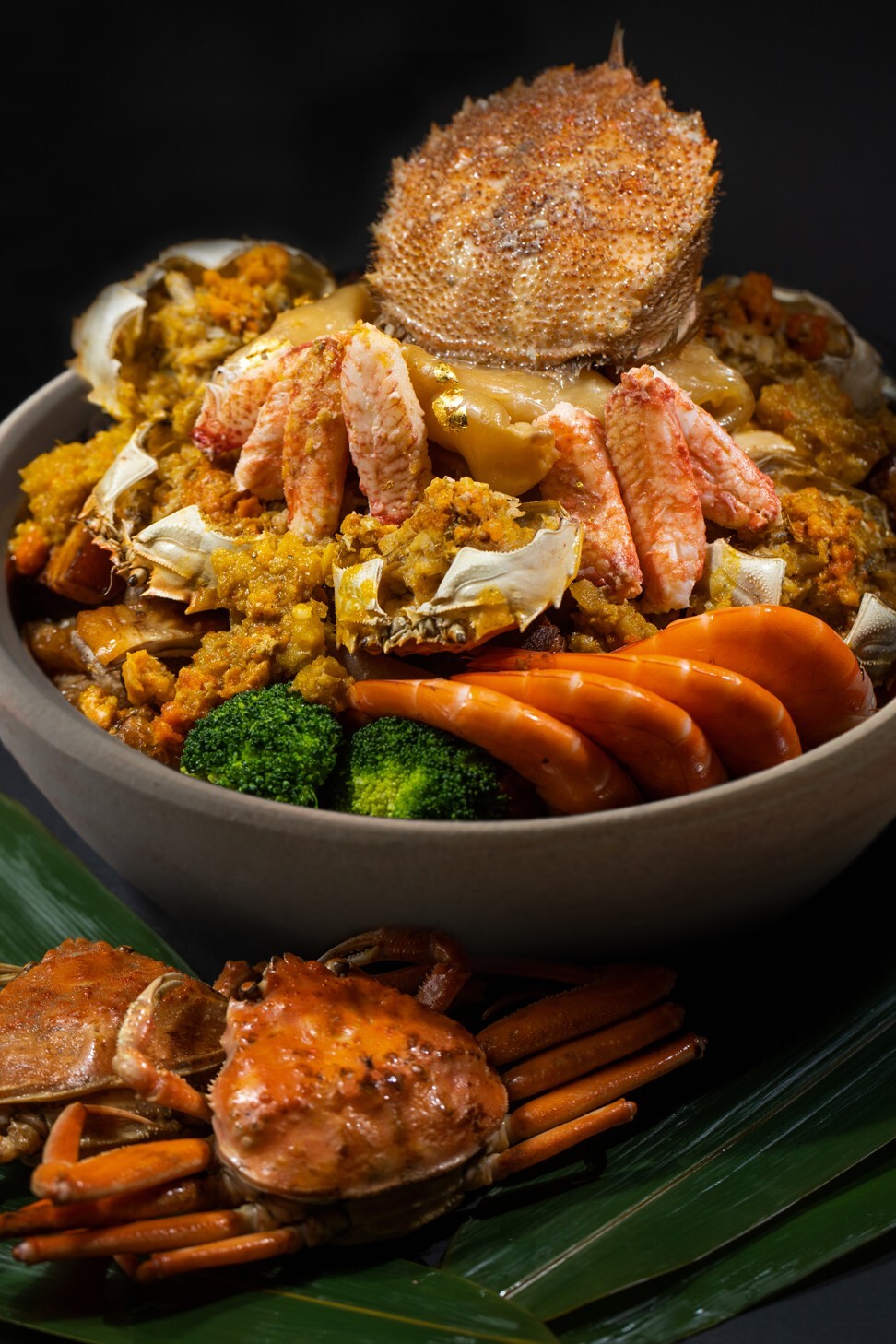
The Sexy Crab restaurant at K11 Musea in Tsim Sha Tsui East offers another alternative to traditional poon choi.
The restaurant, which opened in November, typically serves crabmeat and roe in a rich broth with noodles. For Lunar New Year, sous chef Law Ka-kit presents two poon choi topped with crabmeat and roe. One features golden hairy crab roe with fish maw and lobster paste (HK$2,588 for six to eight people), and Japanese Hokkaido hairy crab with fish maw and lobster paste (HK$3,888 for 10 to 12 people). The dish features 15 ingredients, including dried oyster, shrimps, pork, chicken, roast duck, mushrooms, taro, fish balls, pig skin and lotus root.
To ensure the crabmeat is not overcooked, it is placed at the top of the poon choi, followed by the roe, conpoy and mushrooms, all the way down to the radish, fish balls, bean curd puffs and lotus root that soaks up the essence of the other ingredients.
“We put the crab at the top because it has a fresh and subtle flavour so people can eat it first,” Law explains.
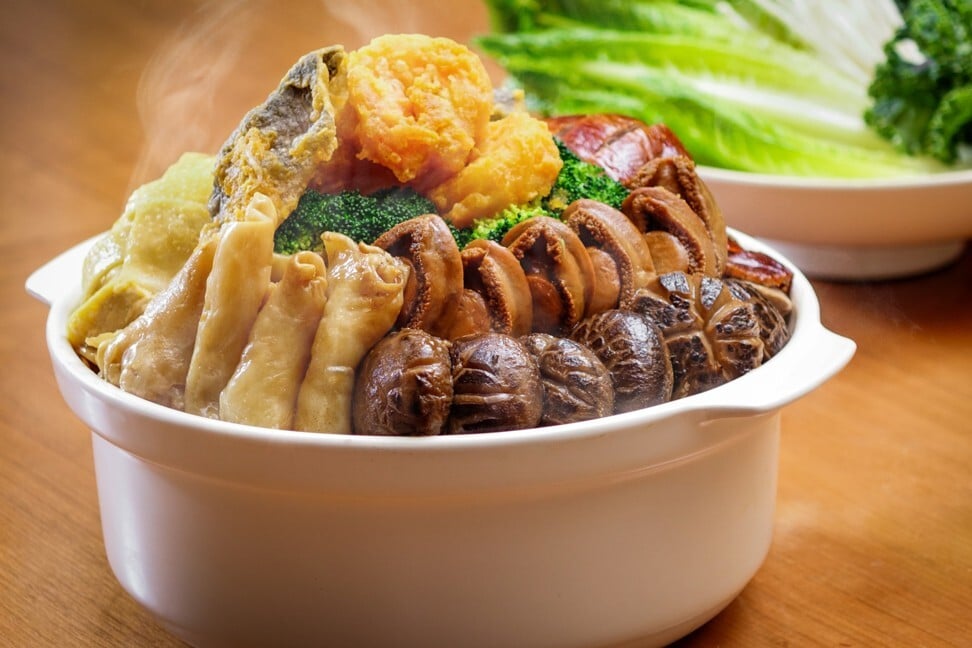
Other Hong Kong restaurants offering poon choi
1. Hyatt Regency
The hotel in Sha Tin has “Poon Choi To Go” from HK$1,588 for four people with self-pickup to HK$2,288 for six people delivered. The ingredients include abalone, fish, chicken, squid, fish balls and bean curd puff. Available from now until February 28.
18 Chak Cheung Street, Sha Tin, New Territories; tel: 3723 1234
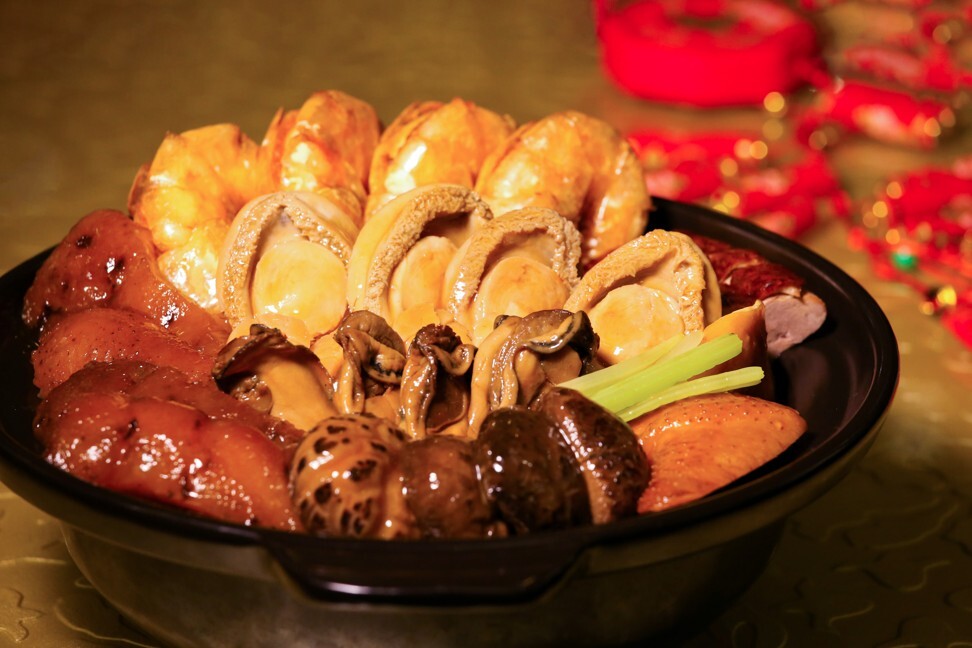
2. Hoi King Heen, InterContinental Grand Stanford
Here poon choi costs HK$1,688 for four people. Also described as a winter casserole, the dish includes abalone, sea cucumber and dried oysters.
70 Mody Road, Tsim Sha Tsui East; tel: 2721 5161
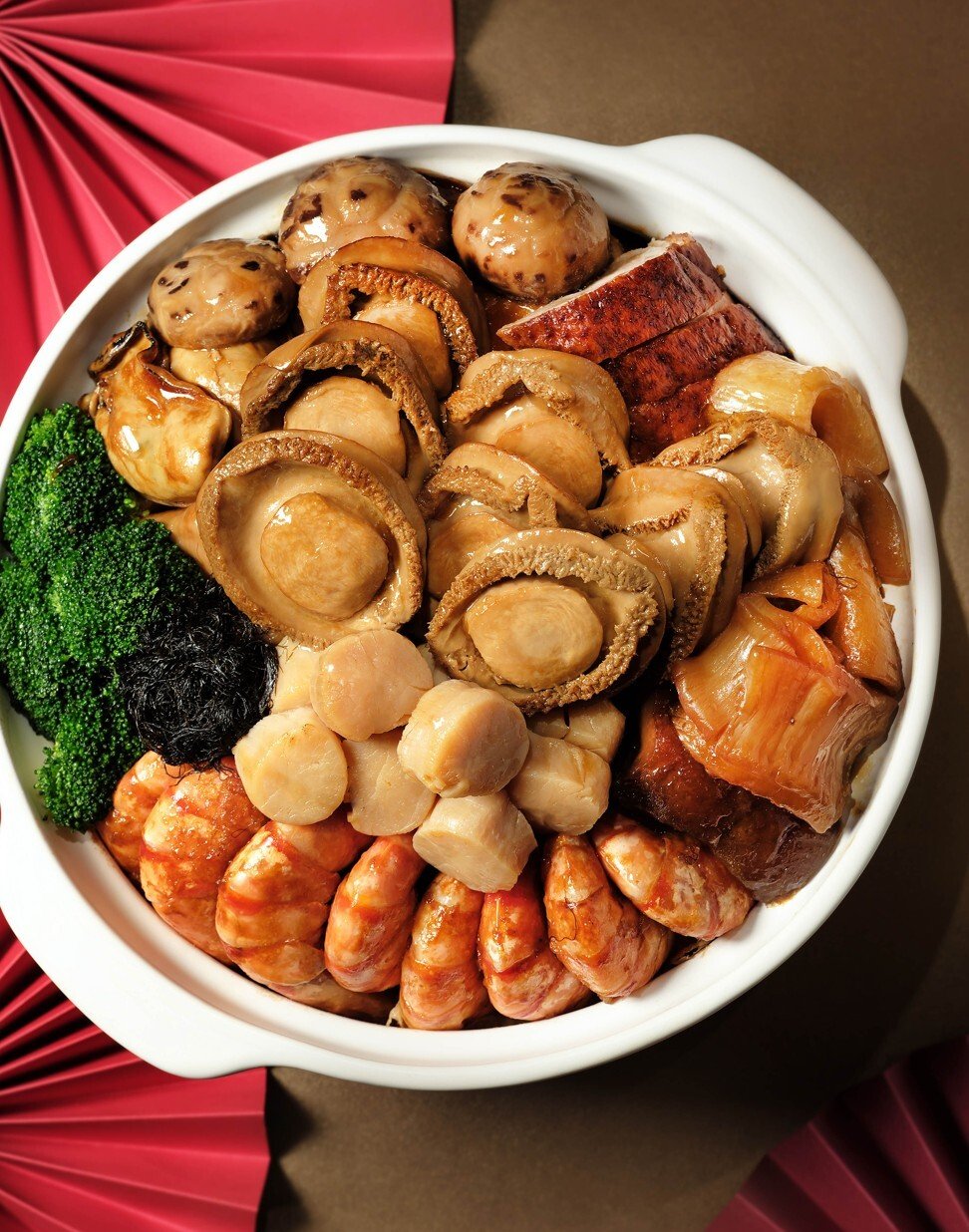
3. Ritz-Carlton Hong Kong
Poon choi here is for one, two, six or eight people. It has 18 ingredients including abalone, fish maw, sea cucumber, conpoy and king prawns. Price starts at HK$688 for one person, to HK$4,888 for eight, not including delivery.
International Commerce Centre, 1 Austin Road West; tel: 2263 2263
4. Soil to Soul
Korean and vegetarian poon choi make for something different. For six to eight people and priced at HK$1,988, it includes tofu pockets stuffed with sweet potato noodles and napa cabbage, radish dumplings, a variety of mushrooms, cabbage kimchi, and ginkgo nuts.
Shop 704, 7/F, K11 Musea, Tsim Sha Tsui East; tel: 2389 9588







